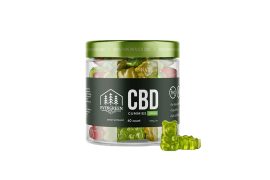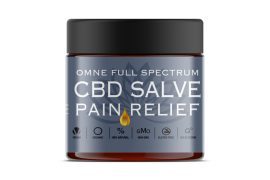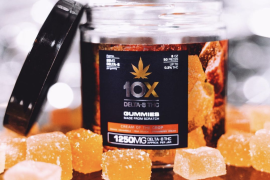The cannabis industry is continually evolving, and new innovations keep introducing exciting alternatives to traditional options. One such breakthrough is the rise of THCA flower, a non-psychoactive form of cannabis that is gaining popularity among users seeking benefits without the “high” typically associated with THC. THCA is the precursor to THC and is found in many cannabis strains, including thc-a strains of budpop, making it a compelling choice for those looking for therapeutic effects with minimal intoxication.
While many people are familiar with the traditional cannabis options, such as THC-rich buds or CBD products, THCA offers a unique experience that differs from its more famous cousin. In this article, we’ll explore what makes THCA flower distinct, how it compares to traditional cannabis products, and why it’s becoming a preferred choice for some.
What is THCA Flower?
THCA, or tetrahydrocannabinolic acid, is a naturally occurring compound in cannabis plants that has many potential benefits but does not cause the psychoactive effects commonly associated with THC. Unlike THC, which only becomes active after being heated (through smoking or vaping), THCA remains non-psychoactive until it undergoes a process known as decarboxylation. This occurs when the flower is heated, activating the THC and making it capable of producing a high.
The THCA flower is typically harvested while the cannabis plant is still in its raw form, preserving the THCA. These flowers are often used in various applications such as tinctures, oils, and other wellness products, providing a therapeutic experience without the intoxicating effects of THC.
Benefits of THCA Flower
The therapeutic potential of THCA has caught the attention of many users seeking medicinal benefits. Some of the reported benefits of THCA flower include its anti-inflammatory, neuroprotective, and antiemetic properties. Many users turn to THCA flower for relief from conditions like chronic pain, inflammation, nausea, and even neurodegenerative diseases.
What makes THCA so appealing is that it allows users to experience the therapeutic benefits of cannabis without the mental cloudiness or impaired function that THC can induce. This is particularly important for people who require relief during the day and want to avoid feeling “high” or unproductive.
Comparing THCA Flower to Traditional THC Products
Traditional THC products, such as THC flower, edibles, or oils, work by introducing THC into the body, leading to the psychoactive effects many are familiar with. While these products have proven effective for recreational use and medical purposes, they may not be ideal for everyone. The psychoactive effects of THC can be overwhelming for some, especially those new to cannabis or those seeking mild therapeutic benefits.
In contrast, THCA flower provides a gentler approach, offering many of the same health benefits as traditional THC options, but without the euphoric or sedative effects. This makes it an appealing choice for individuals who are sensitive to THC or simply prefer to avoid its intoxicating effects.
How THCA Flower Can Be Used
THCA flower is versatile, making it a great option for a variety of applications. Some people enjoy using THCA-rich cannabis in raw form, incorporating it into their wellness routine by juicing it or adding it to smoothies for a fresh and nutrient-packed boost. Others prefer to use it in tinctures, topicals, or oils, allowing for easy dosing and faster absorption.
For those who enjoy smoking or vaping cannabis, THCA can also be activated by heating it, turning it into its active form of THC. This allows users to enjoy the therapeutic benefits of THCA flower while having the option to experience the effects of THC when desired.
The Role of THCA in Cannabis Research
As cannabis research continues to grow, the role of THCA in promoting health and wellness is becoming clearer. Studies suggest that THCA may play a vital role in treating conditions such as arthritis, epilepsy, and even certain types of cancer due to its anti-inflammatory and antioxidant properties. Additionally, THCA has been shown to protect the brain and nerve cells, which may help in the treatment of neurodegenerative diseases like Parkinson’s and Alzheimer’s.
Because THCA is non-psychoactive, researchers are excited about its potential to provide therapeutic effects without the side effects that can come from traditional THC-based treatments. As more research is conducted, we may see even more applications for THCA in both the medical and wellness communities.
Why THCA is Gaining Popularity
THCA flower is becoming increasingly popular due to its ability to provide a non-intoxicating experience while still offering a wealth of therapeutic benefits. Whether for medical use or general wellness, many are discovering that THCA provides an effective alternative to traditional THC products. Additionally, the growing demand for natural and holistic treatments has fueled interest in THCA, as it fits into a broader trend toward plant-based healing.
Another reason for its rise in popularity is that THCA is often seen as a cleaner and more natural option compared to processed THC products. For individuals looking for a more organic, raw cannabis experience, THCA flower offers a way to connect with the plant in its purest form.
Conclusion
In conclusion, THCA flower stands out from traditional cannabis products by offering many of the same therapeutic benefits without the psychoactive effects of THC. Whether you’re seeking relief from chronic pain, inflammation, or simply looking for a more gentle cannabis experience, THCA provides an excellent alternative. As the cannabis industry continues to evolve, THCA flower is likely to play an increasingly important role in both medical and recreational use.




